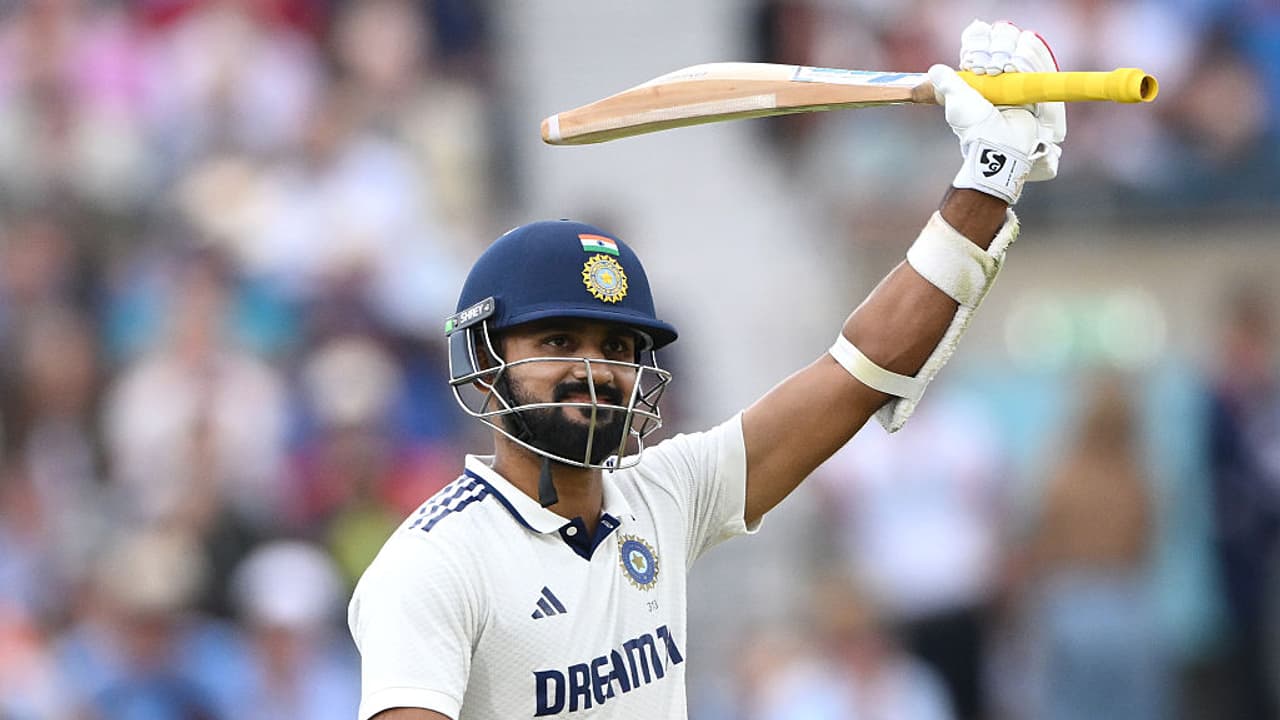Akash Deep’s impressive 66 as a nightwatchman reignited talk around the evolving role in Test cricket. Once a purely defensive move, nightwatchmen like Jason Gillespie and Mark Boucher have shown they can turn the tide with the bat.
When Akash Deep strode out under the fading sky at The Kia Oval, most in the crowd assumed the day’s drama was winding down. But India had just lost two wickets in quick succession — KL Rahul and debutant Sai Sudharsan — leaving the score at 75 for 2. With opener Yashasvi Jaiswal still unbeaten and just a few overs left in the day, India made a bold call. Out walked a fast bowler at No. 4, tasked not with scoring runs but with surviving the night. Akash Deep, the nightwatchman, had entered the spotlight. What followed stunned everyone.
Instead of merely surviving, Akash Deep unfurled a sparkling counterattack. Cover drives laced with elegance, backfoot punches full of authority, and a steely temperament that belied his role. This was no sacrificial pawn. His 61 runs, scored with a clarity and calm that would flatter a top-order batter, lifted India from a tricky position and reignited discussions around one of Test cricket’s most curious roles: the nightwatchman.
A Role Born Out of Risk
The nightwatchman isn’t meant to dazzle. In fact, by definition, he is a stopgap, a lower-order batter sent up the order late in the day to protect a more capable teammate from the risk of a late-evening dismissal. The logic is sound: better a bowler gets out to the new ball in twilight than a top-order batter.
Yet over the decades, the nightwatchman has grown into something more than a shield. Occasionally, he becomes the sword.
Scroll to load tweet…
When Duty Turns into Drama
While Akash Deep’s 66 at The Oval will be remembered for its timing and poise, he is in elite company. Several nightwatchmen have defied expectations and produced innings that live far beyond the shadows of their initial purpose.
Jason Gillespie, the Australian fast bowler, holds the crown jewel of nightwatchman tales. Sent in against Bangladesh in 2006, he batted not just through the night but for days, scoring a monumental 201 not out, the highest score ever by a nightwatchman. Gillespie, who had never scored a century before that innings, was never picked to play Test cricket again. He ended his career not with a bang, but with a double-century fairytale.
Mark Boucher, primarily known as a wicketkeeper, also shone in the role during South Africa’s 2002 tour of Australia. Against a formidable attack, he not only survived the tricky end-of-day overs but went on to score a vital 125.
Then there’s Anil Kumble, who scored 88 against England at The Oval in 2007 after being sent in as a nightwatchman. A coincidence not lost on Indian fans who watched Akash Deep repeat the feat at the same venue nearly two decades later.
The Psychology of the Nightwatchman
What makes a good nightwatchman? It’s not just technical defense, but mental fortitude. The player must embrace uncertainty, often facing conditions and bowlers that would test any top-order bat. They go in knowing they’re not expected to succeed, only to survive.
But in those moments of survival, something else often blooms: freedom. With no pressure to score, the nightwatchman is occasionally gifted the luxury to bat without fear. Ironically, this can lead to the most liberating performances.
From Ritual to Weapon
The nightwatchman is one of cricket’s great quirks, an unsung warrior of Test match strategy. He is the afterthought who sometimes becomes the headline.
Akash Deep’s innings at The Oval was more than just 61 runs. It was a moment that encapsulated the poetry of Test cricket, the idea that even the least likely can become the day’s hero. His knock reminded the world that while the role of nightwatchman may be defined by caution, it is ultimately powered by courage.
